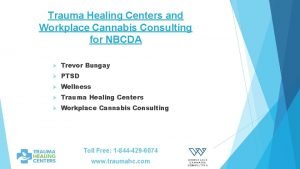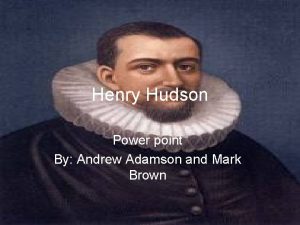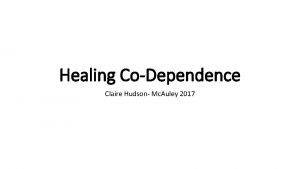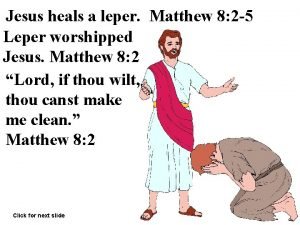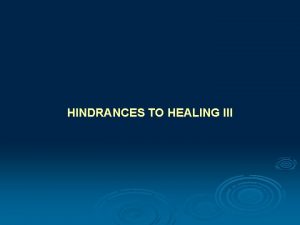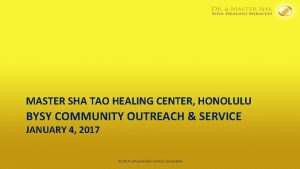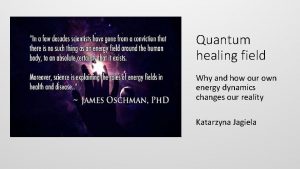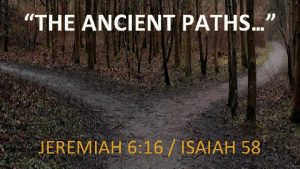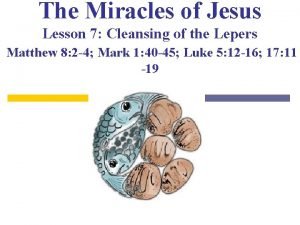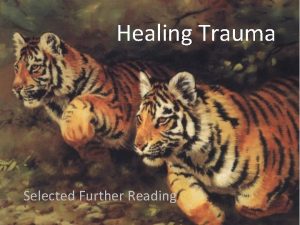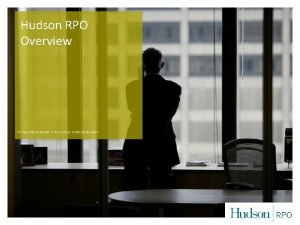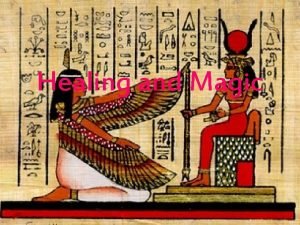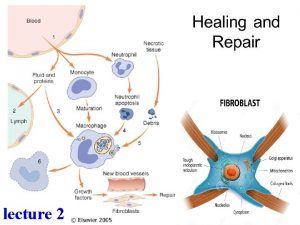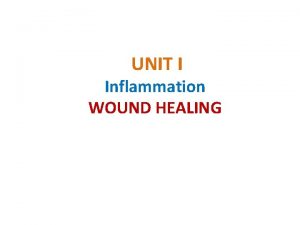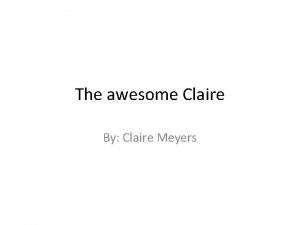Healing CoDependence Claire Hudson Mc Auley 2017 Trauma










- Slides: 10

Healing Co-Dependence Claire Hudson- Mc. Auley 2017

Trauma often creates Co-Dependence • Tough conditions make us cling together to survive • But we often cling to an idealised version of the other/self • We are not ok unless the other is being or doing what we ideally want-it’s a survival system based on control • Or at least the illusion of control • Co-Dependence is as unbalanced as a three legged table • It’s a pattern that creates drama after drama • We become addicted to drama and miss real, authentic connections • Relationships become more and more unsatisfactory over time

The Drama Triangle Rescuer Victim Persecutor

Roles Swap Around • There is NO better role- victim, rescuer and persecutor are all unhealthy! (they are all control positions) • Control is not loving • Roles are fragile because they are based on an ideal, instead of on our humanity • We can have rapid changes of role • Sometimes we inhabit a role more often or prefer to think of ourselves as a particular role • When you try to stop playing a role, others/the system won’t like it!

Co-dependence is like a Chemical Addiction • Like giving up any addiction, it takes focus, persistence and determination • More than anything, we need to change the belief system that drama or intensity = love • Drama gives us a false sense of being alive but exhausts us mentally and emotionally • Choosing what we focus on can change old repetitive patterns • We also have to inhibit old responses to inhibit old patterns • Learning to insert the pause can help

“But I don’t need people” • This is called counter-dependence • It is a compensation for not having appropriate people to attach to • We can instead become addicted to work, gaming, alcohol, TV, or any other behaviour or thing which allows control over unwanted experiences • Counter-dependence is a protective stance initially but becomes limiting or painful over time • It is important to consider counter-dependence in the work of healing co-dependence as they are two sides of the same coin

Interdependence The Solution for Codependence

Davis and Frawley (1994) Rescuer Neglectful bystander Victim Persecutor

Do the opposite of what you’ve been doing! Rescuer Neglectful bystander Empathise Victim Act/do Stop, pause, reflect Wise mind, observing self Persecutor

Cares about own needs Is not dismissive or harsh Displays adequate response to others and self Is present to self and others Leans into supports when needed Avoids rescuing others Interested in others/life Able to tolerate stillness and solitude Able to be with others Able to pause and reflect Takes calm action to resolve issues promptly Able to observe with wise mind Takes the right amount of responsibility Knows how to put in boundaries Resilient Interdependence The Solution for Codependence
